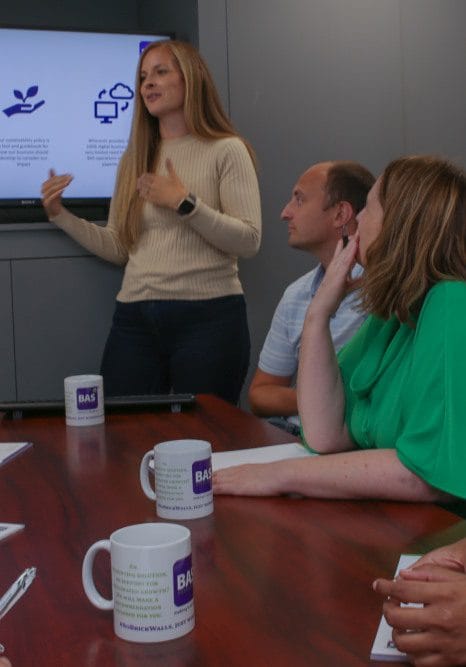What is Basis Period Reform and does it affect me?
HMRC are bringing in new rules, called Basis Period Reform, from April 2024 that will see all unincorporated businesses taxed on their profits for the full tax year, that is April to March.
HMRC have been upgrading their software for many years now, working towards the complete digitisation of tax and this is another element of the plan.
This change only affects businesses with a non-31st March year-end and so if you are a business that already has a 31st March year-end, you are not affected.
HMRC states that currently, some 7% of sole traders and 33% of partnerships have non-31st March year-ends, that is a lot of businesses affected by these changes.
Will I need to change my year-end?
The reform does not legally require businesses to change accounting dates but for the majority, this will be the most practical solution.
If you don’t change, then simply speaking, you will have to ‘cut and stick’ 2 sets of accounts together each year to produce taxable profits/losses for the year from 1st April to 31st March. The apportionment of the 2 sets of accounts will be made with reference to the number of days in each period.
This could end up being quite complicated. For example, where an accounting year-end date falls late in the tax year there will always be the problem of having accounts completed in time to meet the January filing deadline. In some cases, this may result in estimates having to be submitted which will need correcting when figures are finalised. This can leave the taxpayer vulnerable to interest and penalties by HMRC.
BAS are not recommending the option of not changing your year-end.
What is going to change for me in the 2023-24 year?
HMRC wants this year to be the one when everyone moves to the new arrangements and the 2023-24 year is being called the ‘Transitional Year’.
For this tax year only, the accounts that will go on your tax return will be the usual non-31st March year-end accounts PLUS a further short period of accounts from your year-end to 31st March 2024.
So, for example, if your accounts run to say 30th September, then using that as an example, we would also now produce a 2nd short set of accounts from 1st October to 31st March 2024.
With current year ends ranging from 30th April to 28th February, the time period covered by 2 sets of accounts could range in length from 13 months to 23 months.
For businesses affected in this hybrid ‘transitional year’, your normal accounts will be called the ‘Standard Part’ and the 2nd short set of accounts will be called the ‘Transitional Part’ and these will end on 31st March 2024.
Will this affect me adversely?
HMRC recognise that your accounts in the 2023-24 year will be longer than 12 months, and to be taxed for a period longer than a year in one go, would be unfair.
HMRC are happy that the 2 sets of accounts that are produced, can be dealt with in one of two ways – as well as the option in the 2023-24 year to produce 2 sets of accounts (1 long and 1 short) there is the option to merge and produce 1 single set of long accounts. There are tax implications either way.
HMRC have redesigned the Tax Return for the 2023-24 year to accommodate this.
What are HMRC doing to make this fair?
HMRC have mandated that any profits arising from this extra ‘Transitional Part’ can be spread over 5 years, which includes this 2023-24 year. The final year of use is 2027-28 but you do not have to use the full 5 years. The additional profit spreading will be made in the most tax efficient way.
The second thing that HMRC have done is to allow that any Overlap Profits that are showing on your HMRC account must be brought into use during this 2023-24 transitional year.
For businesses with non-31st March year ends which started on or before April 1994, Overlap Profits arose – basically, in your first year of trade, you were taxed twice on the overlapping tax years.
This over-taxation just sits on your HMRC record and it is normally applied in the year that a business ceases to trade and it is then called ‘Overlap Relief’. Overlap Relief can be used to reduce your tax bill in the year of termination.
HMRC have said that the Overlap Relief must be brought into use in this transitional year but it can only be applied to the ‘Transitional Part’.
So, with the 5 year spreading and Overlap Relief being used in 2023-24, HMRC are hoping that this presents a fairer position for businesses affected.
For those of you who receive Child Benefit, HMRC have mandated that any ‘Transitional Part’ profits will not be added in for High Income Child Benefit Charge, so that is good news.
How will Basis Period Reform affect my tax?
That is the great unknown at this stage and there is not a straightforward answer.
A lot will depend on whether you are making a profit or loss in each of the ‘Standard’ and ‘Transitional’ accounts and also, what Overlap Profits you may have.
Each business will have a unique scenario requiring us to run various permutations to be able to come up with the most tax-efficient plan for each business. Some of the various choices include ….
Depending on the balance of profits between the’ Standard Part’ and the ‘Transitional Part’, the decision may be made to apply the full taxation of the ‘Transitional Part’ in year 1, meaning you have no carry forward figures over 5 years.
If profits rise rapidly, it will be best to produce two sets of accounts, if profits fall rapidly, it would be best to do one set.
Another key part of the jigsaw for us to know is whether you are perhaps planning to cease trading during this 5 year period. It is important we know when this might be, as all the remaining ‘Transitional Part’ profit will apply in that final year. It may be more tax-efficient to use it earlier than your cessation date.
The final ‘unknown’ in all of this which is totally out of anyone’s control is what happens if there is a change of Government/or not and what if tax thresholds/rates change? Over 5 years you may say that changes are likely. If any may adversely affect your tax position, we may need to adjust how we treat the 5-year carry forward.
What if I have losses?
HMRC are allowing that if a loss is made in the extra ‘Transitional Part’, this can be applied to any profits in the ‘Standard Part’, or it can be used for the special 3 year carry back against profits of the same trade.
For some with large Overlap Relief this could perhaps generate a loss in the ‘Transitional Part’ that we can usefully carry back to apply to historic profits.
If both parts make a loss, it is only the ‘Transitional Part’ loss that can be carried back 3 years. For any ‘Standard Part’ loss, normal rules apply, this can only carry back 1 year, or it can be carried forward.
So, what should I be doing now and in the future?
As previously said, for all businesses with non-31st March year ends there will be a unique scenario and it is important in this transition year to get ahead of the game.
If you have not already completed your normal or ‘Standard’ accounts for this year then as a matter of urgency, these should be completed.
As soon as possible after the 31st March 2024, the shorter set of ‘Transitional’ accounts needs finalising. This will allow enough time to enable the various permutations to be looked at to ensure that we minimise your tax liability. Things should not be left to the last minute.
From 2024-25 onwards you will have a 31st March year-end and you will need to adjust your record-keeping accordingly.
There may be considerable extra work to be done to arrive at the most tax-efficient position for you. For some of you, this may be completed in year 1, for others this may take the full 5 years to optimise your tax savings.
Basis Period Reform is nothing for you to ‘worry about’, BAS have all options covered, if you have a business with a non-31st March year-end and need assistance with this change, please get in touch, we aim to make this transitional year go as smoothly as possible.
All BAS clients affected by the Basis Period Reform changes have already attended an in-person or online workshop where we explained these stages as a step-by-step process. Not getting that level of support from your accountant?… contact us and speak to a member of our team to understand more about BAS and how we can help set you up for success.
To read HMRC’s full guidance on Basis Period Reform here.

Basis Period Reform Workshop






